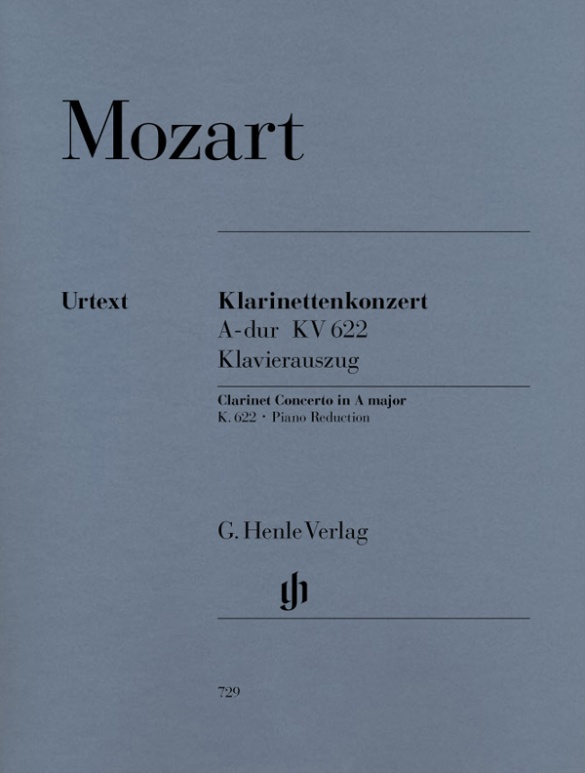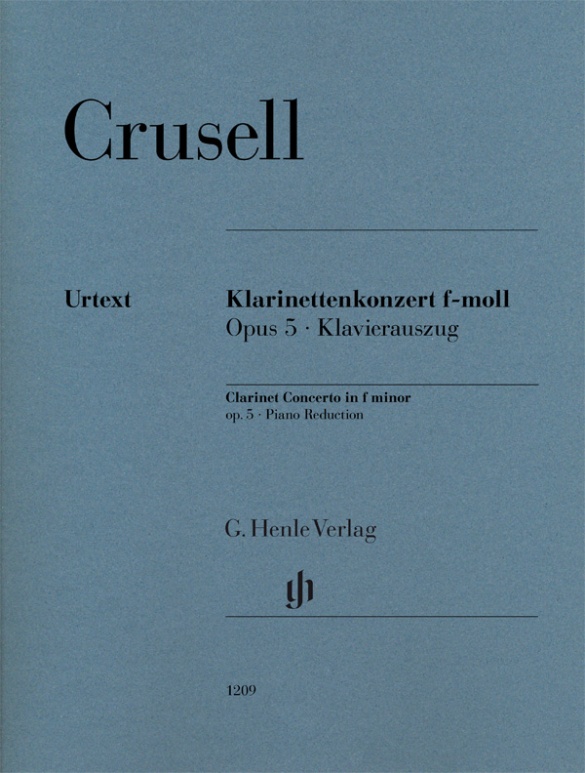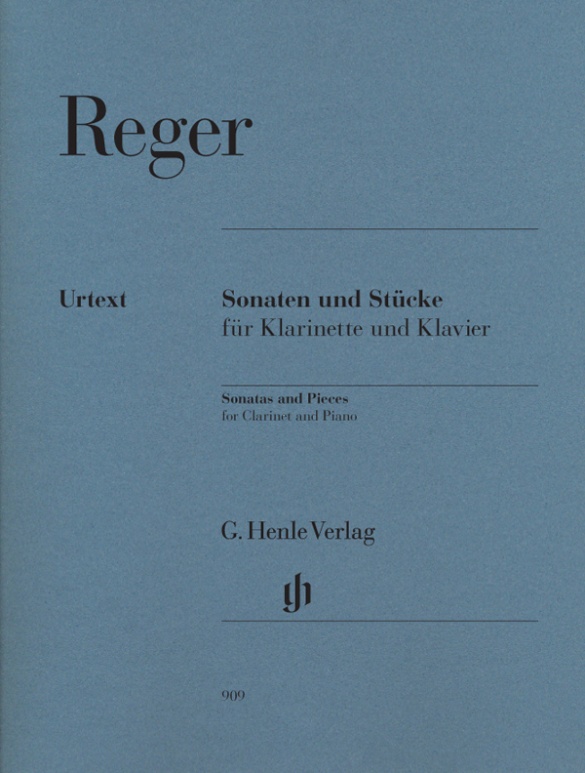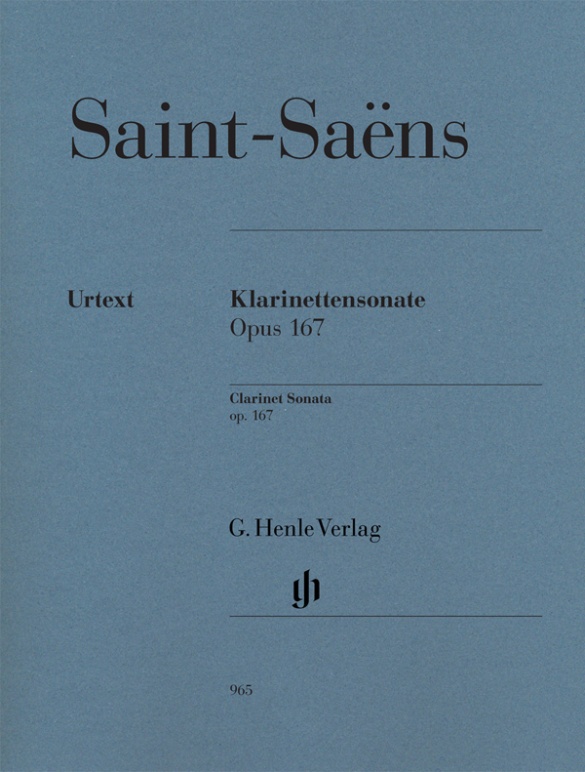

Camille Saint-Saëns
Clarinet Sonata op. 167
For our Urtext edition of the Clarinet Sonata op. 167 we were able to consult the autograph for the first time. “At the moment I am putting my last ounce of energy into giving seldom considered instruments an opportunity to be heard”, Saint-Saëns wrote to a friend in April of the year he died.
A sonata for oboe, one for clarinet and one for bassoon were thus composed; yet he was not to hear the premieres. As far as form and infl ection are concerned, the three wind sonatas op. 166 –168 hark back to the gallant style of the 18th century and thus approach the neoclassicism movement around 1920. Humour, wit and fine irony characterise these works for wind.
Content/Details
About the Composer
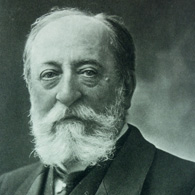
Camille Saint-Saëns
Saint-Saëns was one of the most multifaceted musicians of the second half of the nineteenth century in France. Regarded as a Classicist, he also wrote pieces with an Impressionist character to their sound, and one composition in quarter-tones. As a critic and essayist he was involved in the first complete editions of Rameau’s and Gluck’s works.
| 1835 | Born in Paris on October 9. Early comprehensive education. |
| 1848–52 | Studies at the Conservatoire de Paris. |
| 1853 | Organist at St. Merry Church in Paris. |
| 1853–59 | First large-scale works: Symphony No. 1, Op. 2 (1853), and No. 2, Op. 55 (1859); Piano Concerto No. 1, Op. 17 (1858); Violin Concerto No. 1, Op. 20 (1859); Mass, Op. 4 (1856); he attempts to arrive at unique forms. |
| 1857–77 | Organist at La Madeleine in Paris. |
| 1861–65 | He teaches at the École de Musique Classique et Religieuse Niedermeyer. |
| 1871 | Founding of the Société Nationale de musique. |
| 1871–77 | Composition of symphonic poems “Le rouet d’Omphale” (“The Wheel of Omphale,” 1871), “Phaéton” (1873), “Danse macabre” (1874), “La jeunesse d’Hercule” (1877). |
| 1876 | Attends the performance of the Ring in Bayreuth. |
| 1877 | Performance in Weimar of his opera “Samson et Dalila.” |
| 1881 | Member of the Académie des Beaux-Arts. |
| 1883 | Performance in Paris of his opera “Henry VIII.” |
| 1885 | Publication of the treatise “Harmonie et mélodie.” |
| 1886 | Performance in London of his Organ Symphony (Symphony No. 3 in C minor): major work with thematic transformation after Liszt’s model. Composition of “The Carnival of the Animals,” the publication of which he forbade during his lifetime. |
| 1899 | Publication of the book “Portraits et souvenirs.” |
| 1900 | Cantata “Le feu celeste” in praise of electricity, for the opening of the Exposition Universelle. |
| 1921 | Death in Algiers on December 16. |
About the Authors
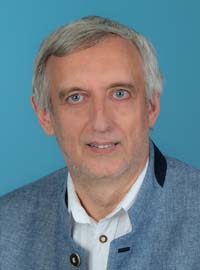
Peter Jost (Editor)
Dr. Peter Jost, born in 1960 in Diefflen/Saar, read musicology, German and comparative studies at Saarland University in Saarbrücken. He did his PhD in 1988 with a thesis on Robert Schumann’s Waldszenen.
From November 1991 to April 2009 he was a research associate at the Richard Wagner Complete Edition in Munich, and since May 2009 has been an editor at G. Henle Publishers. His Urtext editions comprise predominantly French music of the 19th and 20th centuries, including works by Lalo, Saint-Saëns and Ravel.

Klaus Schilde (Fingering)
Prof. Klaus Schilde, born in 1926, spent his childhood in Dresden. There he was greatly influenced by Walter Engel, who taught him the piano (Kodaly method), composition and violin. From 1946–1948 he studied at the music conservatory in Leipzig with Hugo Steurer. After moving to the west in 1952 he studied with Walter Gieseking and Edwin Fischer, as well as with Marguerite Long, Lucette Descaves and Nadia Boulanger in Paris.
Schilde won numerous prizes. From 1947 onwards he gave concerts as a soloist and chamber musician on almost every single continent with renowned orchestras. He taught at the music conservatories in East Berlin Detmold, West Berlin, Munich, Tokyo (Geidai) and Weimar. From 1988–1991 he was President of the Staatliche Hochschule für Musik und Theater in Munich, where he also taught for decades as a professor. There are numerous radio and television broadcasts with Klaus Schilde as well as CD recordings. Schilde has contributed fingerings to almost 100 Henle Urtext editions.
Prof. Klaus Schilde passed away on 10 December, 2020.
Product Safety Informations (GPSR)

G. Henle Verlag
Here you can find the information about the manufacturer of the product.G. Henle Verlag e.K.
Forstenrieder Allee 122
81476 München
Germany
info@henle.de
www.henle.com
推荐
autogenerated_cross_selling
本书目其他版本
本书目其他版本


